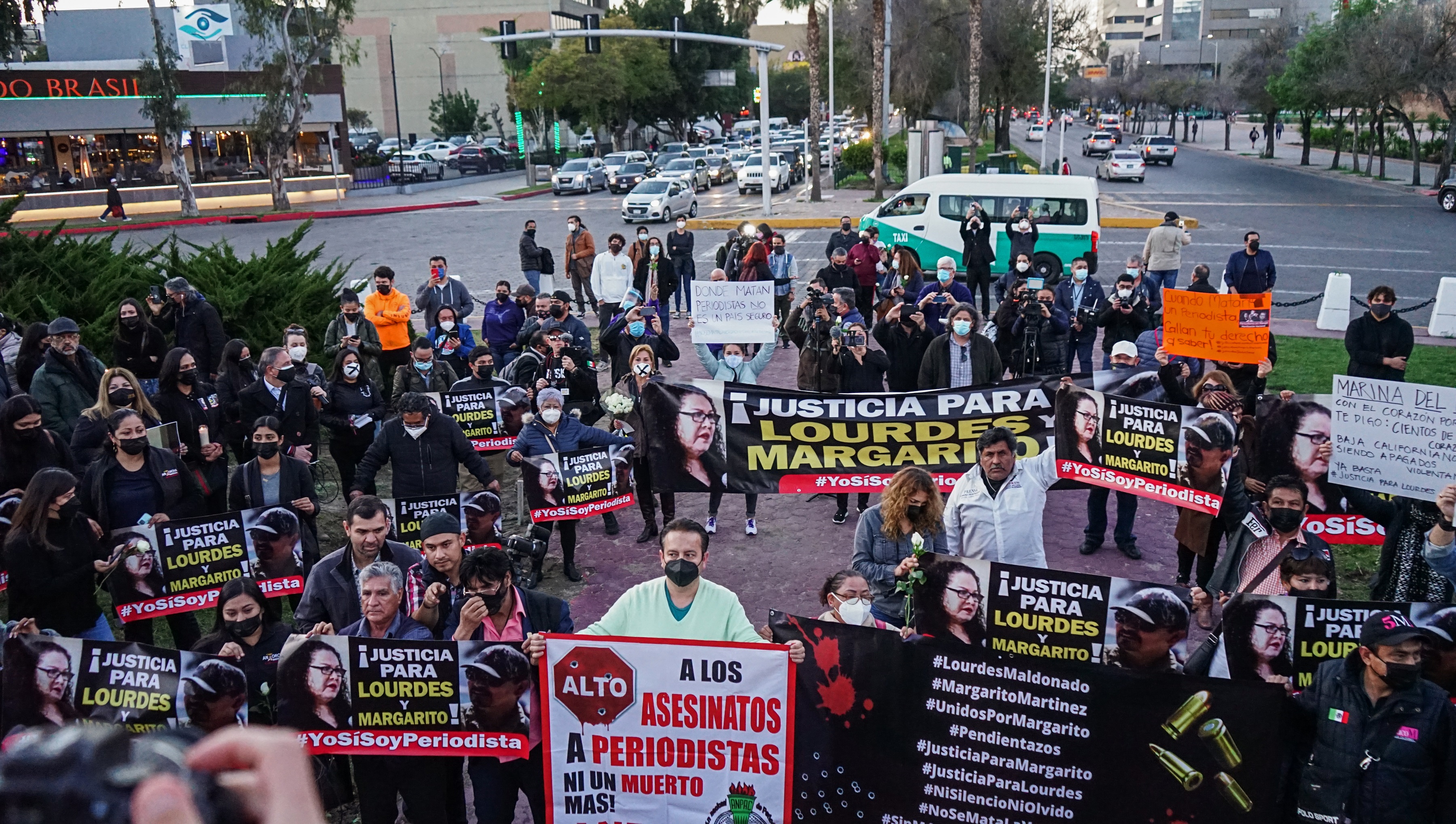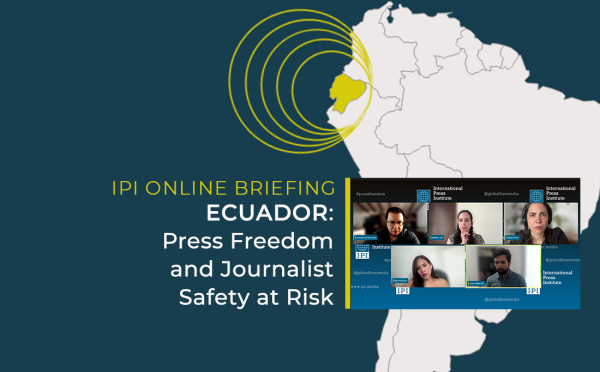Only days after Mexican journalists protested the recent killings of three colleagues in a nation-wide demonstration, another journalist was shot on January 31. The latest murder sadly reaffirms that Mexico is indeed the deadliest country for journalists in the world, co-organizer of the protest Gabriela Martínez told IPI. “We are still mourning the death of our colleague and then we need to cry for the next one.”
On January 31, journalist Roberto Toledo was shot by three gunmen in the city of Zitácuaro, in a region controlled by drug cartels and criminal gangs. He is the fourth journalist killed in Mexico in one month, continuing Mexico’s status as the deadliest country for journalists in the world.
Just a few days earlier, on January 25, journalist Gabriela Martínez had walked the streets of her city, Tijuana, together with thousands of others throughout Mexico. In at least 40 cities, people protested the deaths of three Mexican journalists this month and demanded better protection for the press. The demonstrators marched under the name #PeriodismoEnRiesgo (Journalism At Risk). “There were activists, NGOs, families of journalists, students from local universities”, Martínez, who works for the newspaper El Universal, told IPI. “It made us journalists feel that we are not alone, it made us feel heard by society.”
Two of the four journalists assassinated in January were shot in Tijuana, close to the U.S. border. Photojournalist Margarito Martínez, 49, was shot by unidentified gunmen and died before he even reached the hospital. Less than a week later, journalist Lourdes Maldonado, 66, was shot in her car and died not much later. Maldonado was said to have feared for her life prior to her murder.
For Gabriela Martínez, it was not just a professional, but also a personal loss. She knew Margorito Martínez well, describing him as “a friend and a mentor”, recalling: “In my first job, he was the reporter who covered all the violence, and we became colleagues. In my second job, I started covering violence, too. Since I knew Margarito from before, I always called him and asked: where are you, what is happening? At some point, we went to the streets at 1 AM, 2 AM. And he always protected me. I value what he taught me so much.”
Yet she hasn’t had much time to mourn Martínez. “The reality is: because we are journalists, we do not have the time to process it all, to be at home quietly. We have been doing a lot of things every single day since this happened.”
Better protection
The protests in 40 cities were organized as an “instant movement”, Martínez explained. “After the third assessination, of Lourdes Maldonado, it was so crazy. We were still healing from the pain of Margarito’s death, and six days later, we needed to cry for another colleague? The violence is everywhere. Because of this, everyone felt we needed to do something quickly.”
In Mexico, around 90 percent of crimes against journalists go unpunished. Since the killings, Martínez and her colleagues have tried to improve security for threatened journalists. “We are trying to create a new security mechanism for journalists, although we are not professionals, trying to get help from international organizations.”
Mexican authorities had already set up such a protection program for journalists, but that has failed repeatedly, according to Martínez. “The authorities failed to integrate Margarito in this mechanism. Maldonado was included in the protection program; the authorities actually put two cops on her case, as she had been shot once before. Still, she’s dead right now. So it feels like an empty mechanism.”
Promises
After the protests, the local government of Baja California, where Tijuana is located, announced changes. “Governor Marina del Pilar announced that she wants to change the local law, to make the punishments against those who kill journalists more severe”, Martínez said. “Also, she wants to improve the local mechanism to protect journalists.”
It leaves Martínez with mixed feelings. “You could say that such change is great. On the other hand, we do not want more severe punishment, we want these punishments to not even be necessary, as we want no journalists to be killed at all.”
She considers the feelings of unity among Mexican journalists to be an opportunity for change. “We want to make changes now, even with limited resources. So we are speaking with every person, every NGO or media organization that gives us the space, so that we can improve the conditions to be a journalist in Mexico. For many years, so many of my colleagues have become victims of violence in the country. But it is enough, right? It is enough.”



